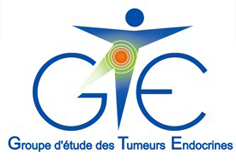SAFETY, EFFICACY, AND TOLERABILITY OF BOS172738 IN PATIENTS WITH ADVANCED REARRANGED DURING TRANSFECTION (RET) GENE-ALTERED TUMORS
- Type d'étude :
- Interventionnelle
- Promoteur :
- Boston Pharmaceuticals
- Etat actuel de l'étude :
- Terminée aux inclusions
Safety, Efficacy, and Tolerability of BOS172738 in Patients With Advanced Rearranged During Transfection (RET) Gene-Altered Tumors
NCT03780517
Boston Pharmaceuticals
RET-altered Non Small Cell Lung Cancer, RET altered Medullary Thyroid Cancer
Interventionnelle
1
114 participants
France: Institut Gustave Roussy, Institut Bergonié (bordeaux), Belgique, Espagne
Number of participants with any treatment-emergent serious adverse event, with any non-serious TEAE, with grade 3, grade 4, or grade 5 TEAEs, with any related TEAE, with any TEAE leading to study drug discontinuation
Maximum tolerated dose
Recommended phase 2 dose
Objective Response Rate, Objective Disease Control Rate, Progression-Free Survival, Duration of Response Time to Response, Duration of Complete Response
• Male or female participants must be ? 18 years, at the time of signing the informed consent
• Diagnosis of advanced solid tumor with a documented rearranged during transfection (RET) gene altered malignancy as determined locally by a DNA based assay of tumor tissue and/or blood
• Participants must have no alternative approved therapy.
• For participants in Part B expansion cohort only: documented local diagnosis of either 1) advanced RET gene fusion non-small cell lung cancer (NSCLC); 2) advanced RET gene mutant medullary thyroid cancer (MTC); or 3) other RET gene altered advanced tumors or NSCLC/MTC with prior specific RET gene targeted therapy
Eastern Cooperative Oncology Group (ECOG) performance status of 0 or 1
• Negative pregnancy test for females of child bearing potential; must be surgically sterile, postmenopausal, or willing and able to be compliant with a contraceptive regimen
• Contraceptive use by men or women should be consistent with local regulations.
• Capable of giving signed informed consent
• Inability to take oral medications or gastrointestinal (GI) conditions that can interfere with the swallowing or absorption of study medication
• Uncontrolled or severe concurrent medical condition
• History of upper GI bleeding, ulceration, or perforation within 12 months prior to the first dose of study drug
• Known history of stroke or cerebrovascular accident within 6 months prior to the first dose of study drug
• Participants with known infection with human immunodeficiency virus (HIV) or Acquired Immune Deficiency Syndrome (AIDS) (testing not required)
• Participants who are hepatitis B surface antigen positive or participants who are hepatitis C antibody positive (Participants who have been successfully treated for hepatitis C virus [HCV] are eligible if an undetectable HCV viral load at least 6 months after completion of treatment can be demonstrated.)
• Any evidence of serious active infections
• Uncontrolled or severe cardiovascular disease
• Uncontrolled intercurrent illness or psychiatric illness/social situations that would limit compliance with study requirements
• Participants with a prior or concurrent malignancy other than the malignancies under study ongoing cancer directed therapy
